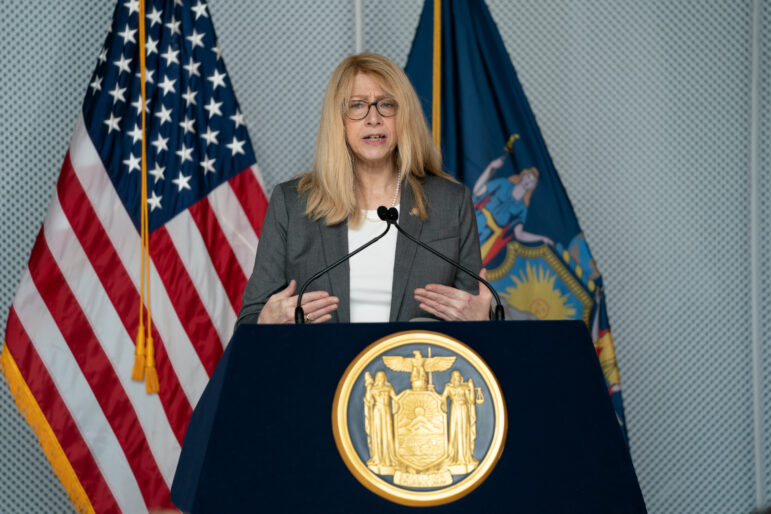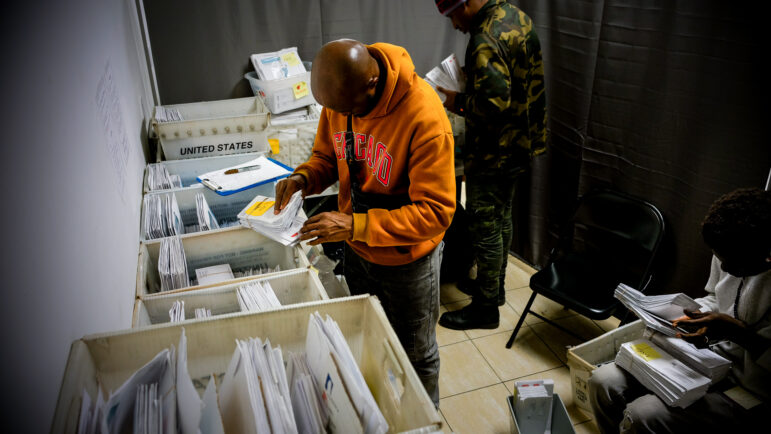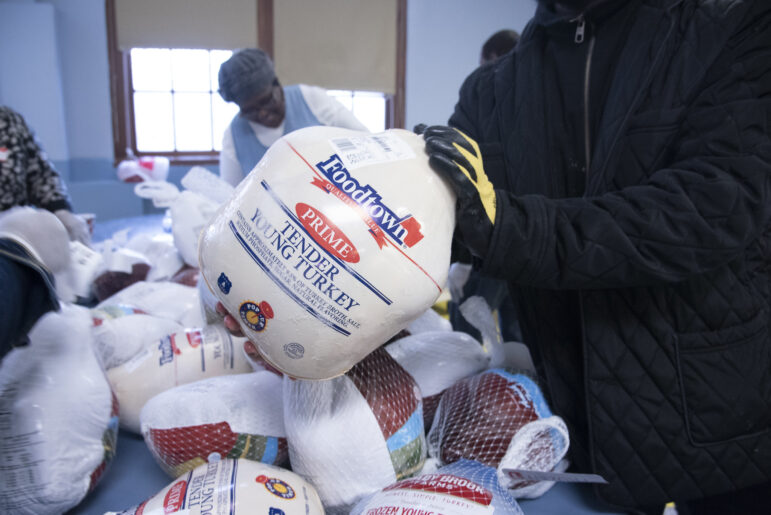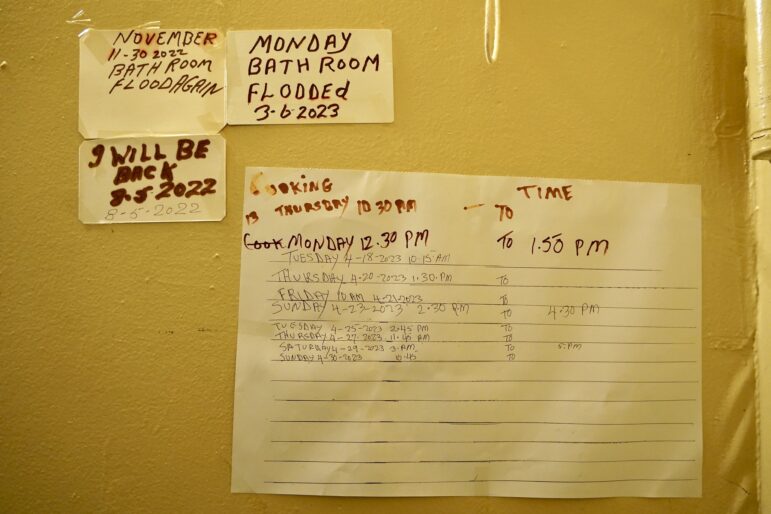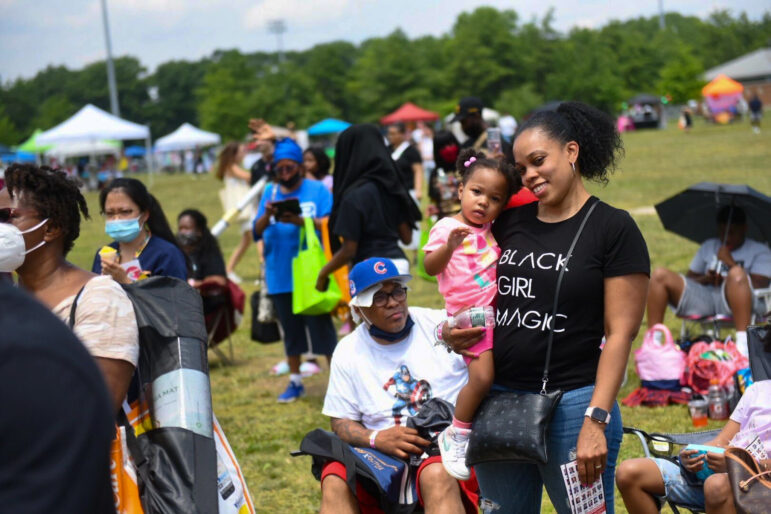Manhattan City Councilmember Carlina Rivera introduced legislation Wednesday that would expand eligibility criteria for city-funded supportive housing to include people with justice system involvement in the last year—a change long sought by advocates, who say it would increase options for New Yorkers cycling between jail and shelter.
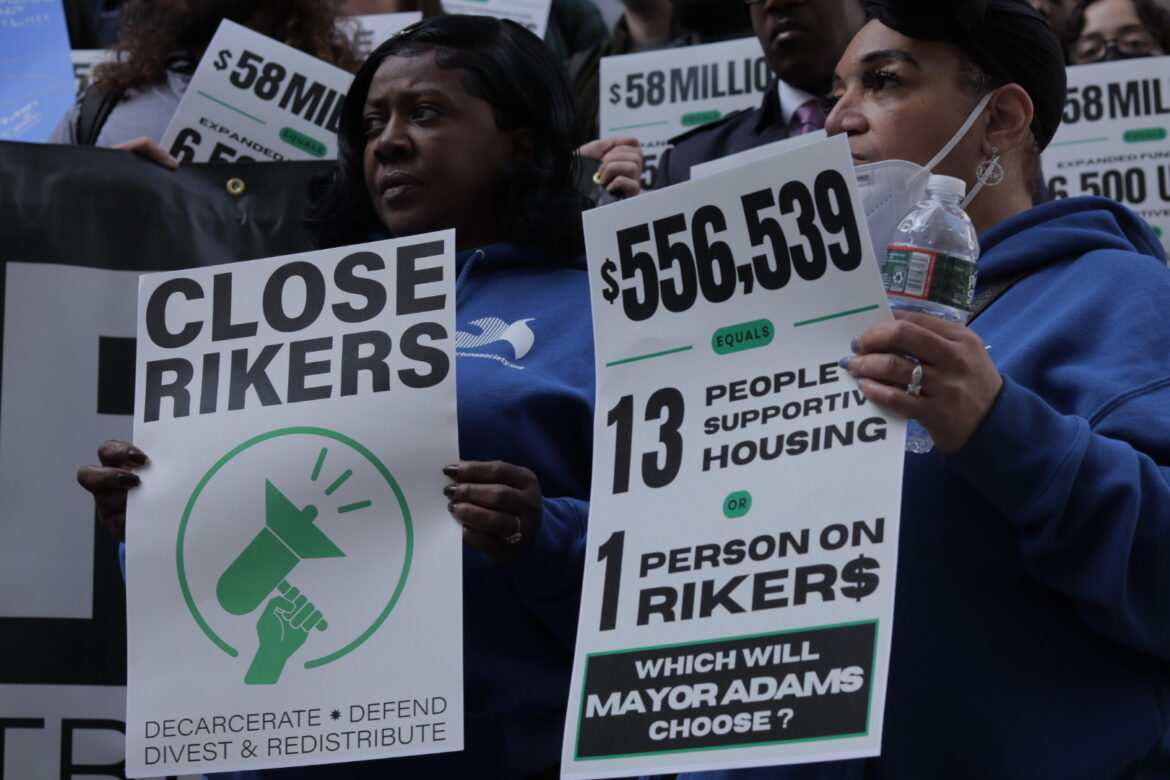
Neha Gautam/Urban Justice Center
A May 2023 rally calling for the city to move forward with plans to close Rikers, citing the costs of incarceration compared to supportive housing.City Councilmember Carlina Rivera introduced legislation Wednesday that would expand eligibility criteria for city-funded supportive housing to include people with justice system involvement in the last year—a change long sought by advocates, who say it would increase options for New Yorkers cycling between jail and homeless shelters.
Rivera, who represents parts of midtown and lower Manhattan, had previously shared her plans to pursue such a bill with City Limits this past spring. The newly introduced Int. 1100 would require any supportive housing projects funded solely by the city be open to applicants who meet other criteria—at risk of or currently experiencing homelessness, and have a mental illness or substance use disorder—even if they’ve been recently incarcerated.
Under current rules, most supportive housing—affordable apartments that come paired with additional services, like access to health care and counseling—requires applicants to be “chronically” homeless, meaning they’ve been unhoused for long stretches of time, typically a year. A stint in jail for more than 90 days would disqualify someone from most units, restarting the clock on their “chronically” homeless status.
Progressive lawmakers and criminal justice advocates say stable housing can reduce recidivism, and judges are often more likely to release defendants awaiting trial from jail if they have a home to return to. They say more housing options for incarcerated or recently incarcerated people would help lower the population at the city’s troubled Rikers Island jail complex, which is by law supposed to close by 2027, but where the number of people behind bars has only increased in recent years.
“Rikers Island is a humanitarian disaster, and we must do everything in our power to increase access to safe permanent housing and holistic medical services to prevent incarceration and promote wellness and stability,” Rivera said in a statement Wednesday. “We must update our housing policies to be sensitive to the unique vulnerability faced by people cycling in and out of the jail system.”
The Corporation for Supportive Housing estimates that more than 2,500 people being held on Rikers for more than a year could benefit from supportive housing, but are disqualified by homeless “chronicity” requirements.
“For many people exiting Rikers without a home, they will exit from jail right into the shelter system,” the organization wrote in a fact sheet calling for reforms during the city’s most recent budget negotiations.
Mayor Eric Adams previously indicated support for tweaking supportive housing eligibility criteria to include incarceration.
“One of the problems that we have is that, those who are re-entering society, oftentimes we don’t have a landing for them,” he told a City Limits reporter back in May. “Our team is going to look at that and see what modifications we can make. I don’t consider incarceration as being a home and being housed.”
Rivera’s bill comes after the city budget, passed at the end of June, increased funding for another supportive housing program specifically geared toward New Yorkers who’ve spent time behind bars: the city’s Justice Involved Supportive Housing (JISH) program, or JISH.
A 2019 plan to increase the number of JISH beds from 120 to 500, included as part of the city’s Points of Agreement to close Rikers, largely failed to advance over the last five years, due to what providers say was inadequate funding.
But the budget for fiscal year 2025, which kicked off July 1, included an additional $6.4 million for the program, which provides supportive housing, case management and behavioral health services to New Yorkers “frequently cycling through jail and shelter who have a mental illness and/or substance use disorder.”
Stanley Richards, president and CEO of The Fortune Society—which operates about 60 of the city’s current JISH beds—praised Rivera’s new bill in a statement Wednesday.
“Everyone deserves a home, and we are all safer when everyone has one,” he said.
To reach the reporter behind this story, contact Jeanmarie@citylimits.org.
Want to republish this story? Find City Limits’ reprint policy here.


